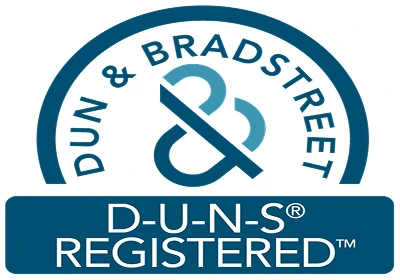Bulk Chemicals Published Insights
Published Date : 08 Feb, 2026
Soy oil or soybean oil is a vegetable oil extracted from the seeds of the soybean. Palm oil is an edible vegetable oil derived from the reddish pulp of the fruit of the oil palms. The food industry is the major consumer of soy oil. Apart from the food industry, soy oi... View more
Published Date : 08 Feb, 2026
N-Methyl Diethanolamine (MDEA) is an organic compound that is a colorless liquid and has an ammonia odor. N-Methyl Diethanolamine is widely used as a sweetening agent in oil refineries, natural gas and syngas, and chemical production. The applications of MDEA include ... View more
Published Date : 08 Feb, 2026
Magnesium is a naturally occurring mineral that is essential for the effective functioning of different body systems. Magnesium hydroxide is the precipitation of magnesium salts with potassium, sodium or ammonium hydroxide. Magnesium hydroxide has a milk like appearan... View more
Published Date : 08 Feb, 2026
Glutaraldehyde is an organic compound that is widely used as a sterilizing and disinfecting agent. It is known for its high efficacy against microbes and spores. Glutaraldehyde finds major applications in hospitals and healthcare facilities as a cold sterilizing agent... View more
Published Date : 08 Feb, 2026
Bicycle chain lubricant is a crucial component in maintaining the performance and longevity of bicycles. It plays a vital role in reducing friction between the chain and gears, ensuring smooth shifting and minimizing wear and tear. With the increasing popularity of cy... View more
Published Date : 08 Feb, 2026
Mastic gum, also known as Mastiha, is a resinous substance derived from the Pistacia lentiscus tree, which is native to the Mediterranean region. This unique gum has been prized for its medicinal and therapeutic properties for centuries. The use of mastic gum dates ba... View more
Published Date : 08 Feb, 2026
Pyroxasulfone is a pre-emergent herbicide that is widely used in the agricultural industry for controlling a variety of grasses and broadleaf weeds. It belongs to the chemical group of isoxazole derivatives and offers effective and long-lasting control over undesirabl... View more
Published Date : 08 Feb, 2026
Strontium nitrate is a chemical compound that is widely used in various industries such as pyrotechnics, fireworks, and ceramics. It is an inorganic salt that is commonly used as an oxidizing agent in fireworks to produce the vibrant red color. Strontium nitrate can a... View more
Published Date : 08 Feb, 2026
Methylene chloride which is also known as dichloromethane, is a colorless liquid with a sweet aroma. It has a wide range of applications across various industries, including paint and coatings, pharmaceuticals, adhesives, and food and beverage. Methylene chloride is known for its excellent solven... View more
Published Date : 08 Feb, 2026
The global ammonium nitrate market is estimated to be valued at USD 18.41 Bn in 2025 and is expected to reach USD 25.21 Bn by 2032, exhibiting a compound annual growth rate (CAGR) of 4.6% from 2025 to 2032. The global ammonium nitrate market has been witnessing ... View more
Published Date : 08 Feb, 2026
Flexfuel is a type of fuel that is blended with gasoline and ethanol in varying quantities. It is designed to be used in flexible fuel vehicles (FFVs), which have the ability to run on a mixture of gasoline and ethanol, or even on pure ethanol. Increasing concern over... View more
Published Date : 08 Feb, 2026
Brazil ethanol market has gained significant attention in recent years due to its growing importance in the global energy landscape. As one of the largest producers and consumers of ethanol, Brazil plays a critical role in the renewable energy sector. Ethanol which is... View more
Published Date : 08 Feb, 2026
Introduction Calcium citrate malate is a calcium supplement compound formed by combining calcium with citric acid and malic acid. This unique combination enhances calcium absorption in the body, making it an effect... View more
Published Date : 08 Feb, 2026
The global cooling and heating as a service market is estimated to be valued at USD 85.13 Bn in 2025 and is expected to reach USD 176.45 Bn by 2032, exhibiting a compound annual growth rate (CAGR) of 10.97% from 2025 to 2032. The global naphthenic base oil market has ... View more
Published Date : 08 Feb, 2026
The Brazil flexfuel market has gained immense popularity in recent years due to the increasing demand for vehicles that can run on both gasoline and ethanol. Flexfuel vehicles offer the flexibility to use either fuel, depending on availability and cost, making them hi... View more
Published Date : 08 Feb, 2026
Titanium Nitride Coating, also known as TiN coating, is a high-performance surface treatment that offers excellent levels of hardness, wear resistance, and thermal stability. It is widely used in various industries such as automotive, aerospace, medical, and industria... View more
Published Date : 08 Feb, 2026
Trivalent chromium finishing is the process of electroplating a thin layer of chromium onto the surface of a metal substrate. Chromium plating provides corrosion resistance, wear resistance, and an aesthetically pleasing shine to the substrate. The process involves su... View more
Published Date : 08 Feb, 2026
Electrical insulation coatings refer to protective coatings applied to electrical components and devices to provide insulation from voltage and current. They help minimize power loss and prevent short circuits and equipment failure. Factors such as rapid industrializa... View more





